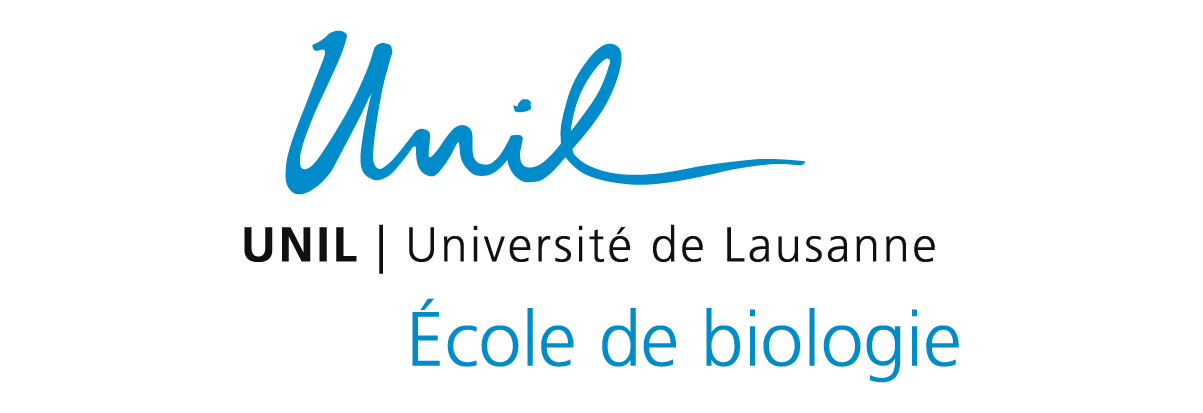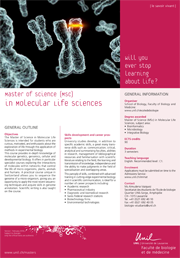
The goal of the Master of Science in Molecular Life Sciences (MLS) is to train students for the exploration of life through experimental and computational approaches.
This Master is for students enthusiastic about interdisciplinary work, leading to acquisition of specialised and transferable skills, through both individual and group work. In brief, the MLS program offers:
- Two personal research projects: a First step project and a Master research project.
- A variety of specialised courses exploring diverse aspects of the biology of microorganisms, plants, animals and humans, as well as applied biotechnological and analytical approaches, from which students can compose their curriculum of choice.
- Several classes in key soft skills, including scientific writing, oral presentation and public outreach.
- A unique practical course allowing students to sequence and analyse the genome of one or more microorganisms, applying the most recent sequencing and computational techniques.
While you may choose to follow a curriculum that allows you to maintain a broad education, the MLS Master offers two specialisations, in Bioinformatics and Microbiology.





